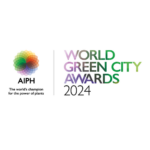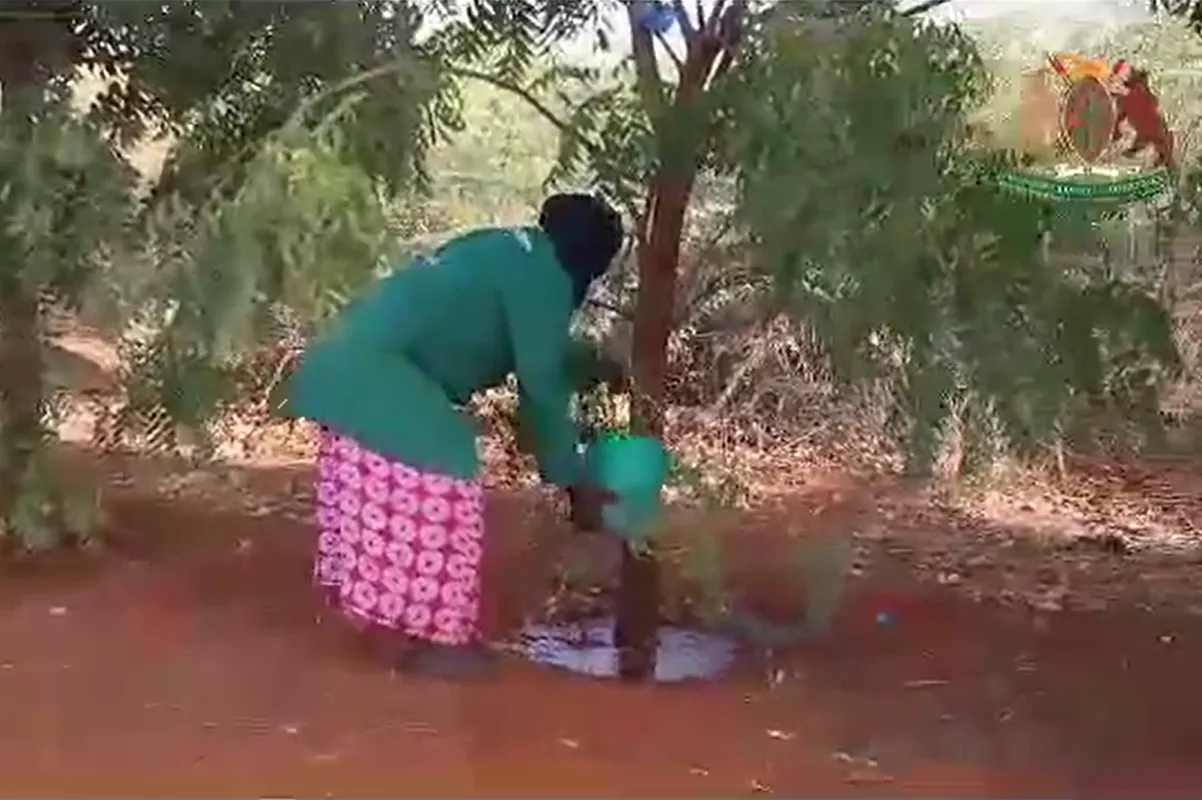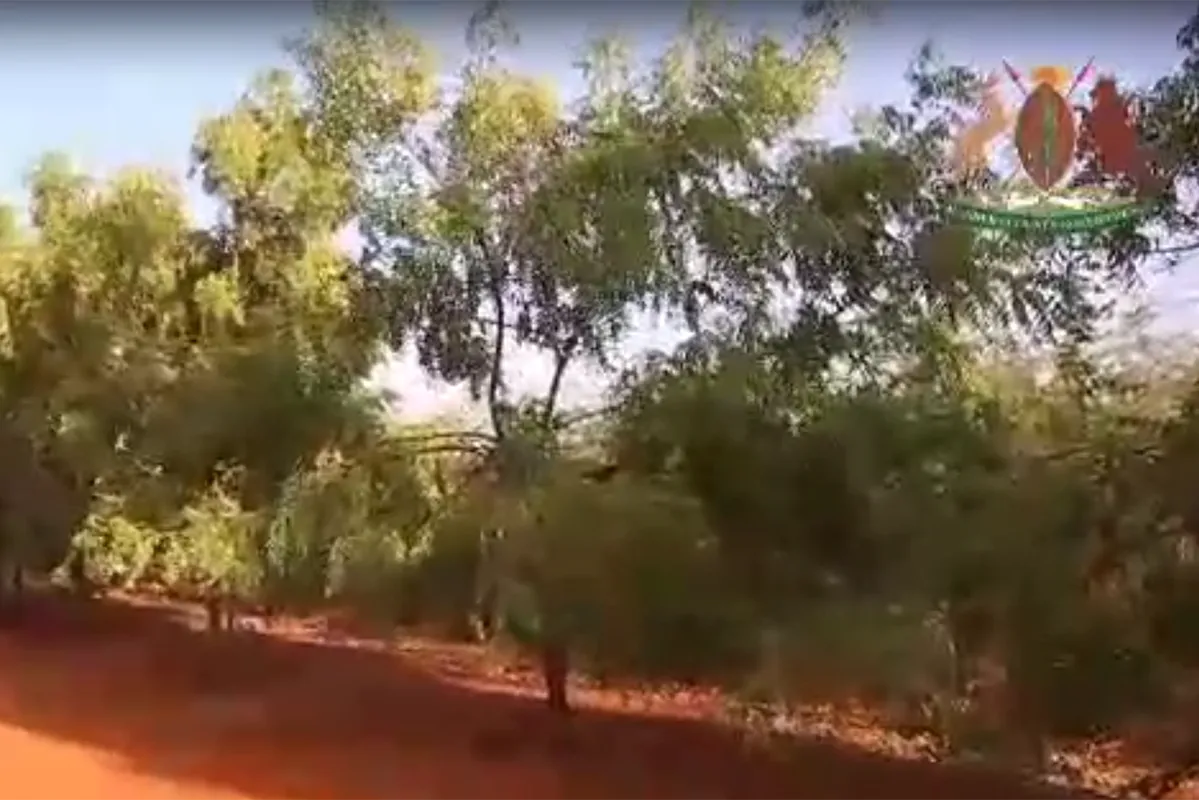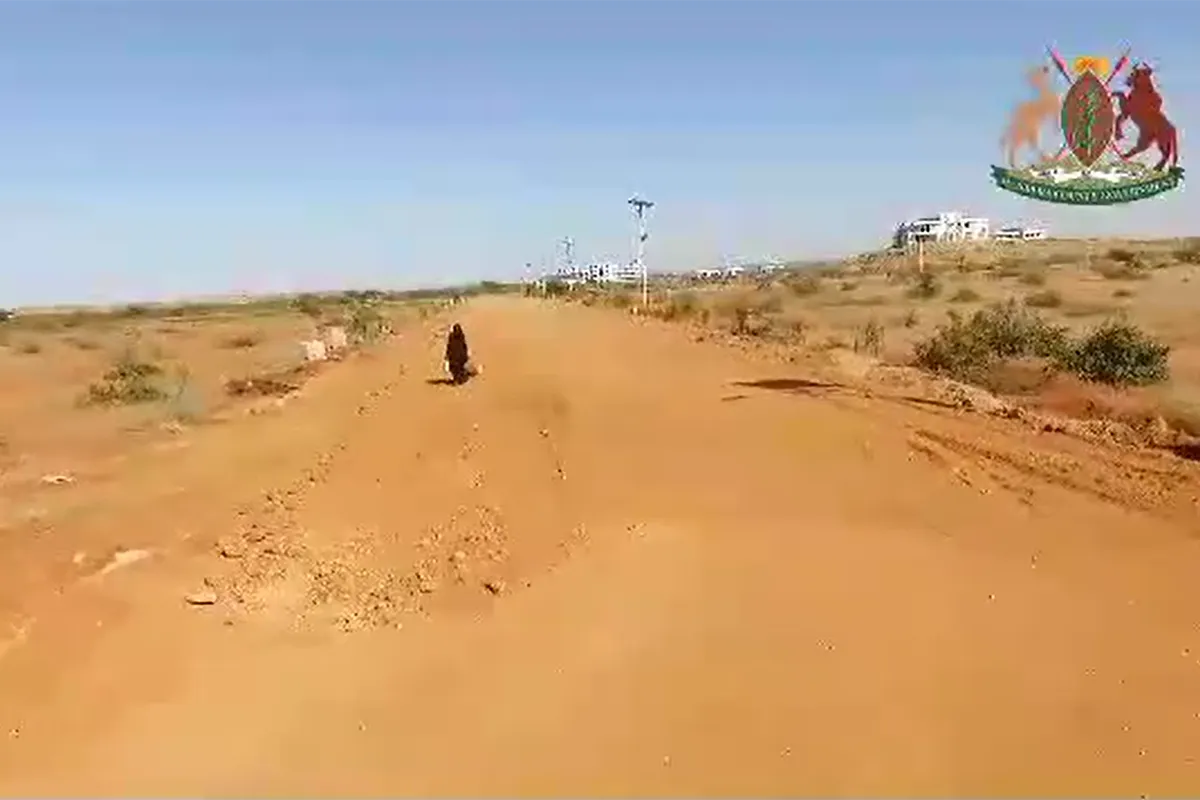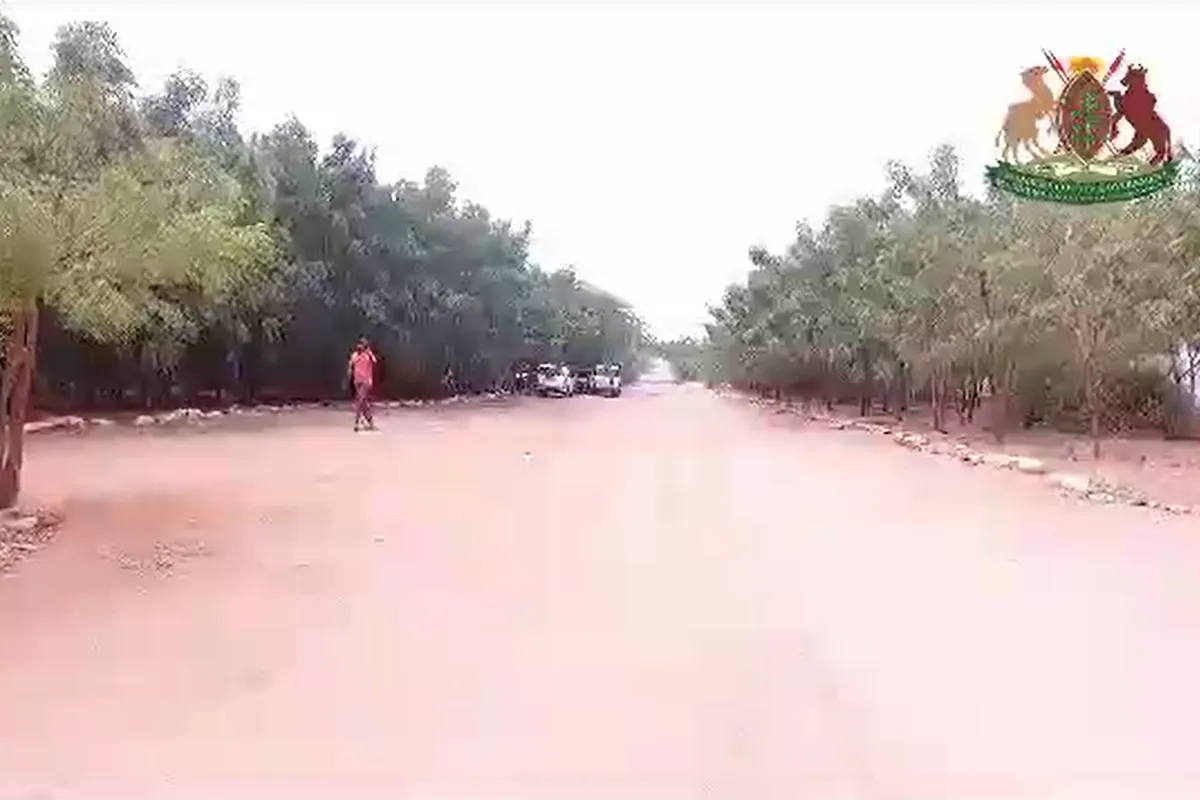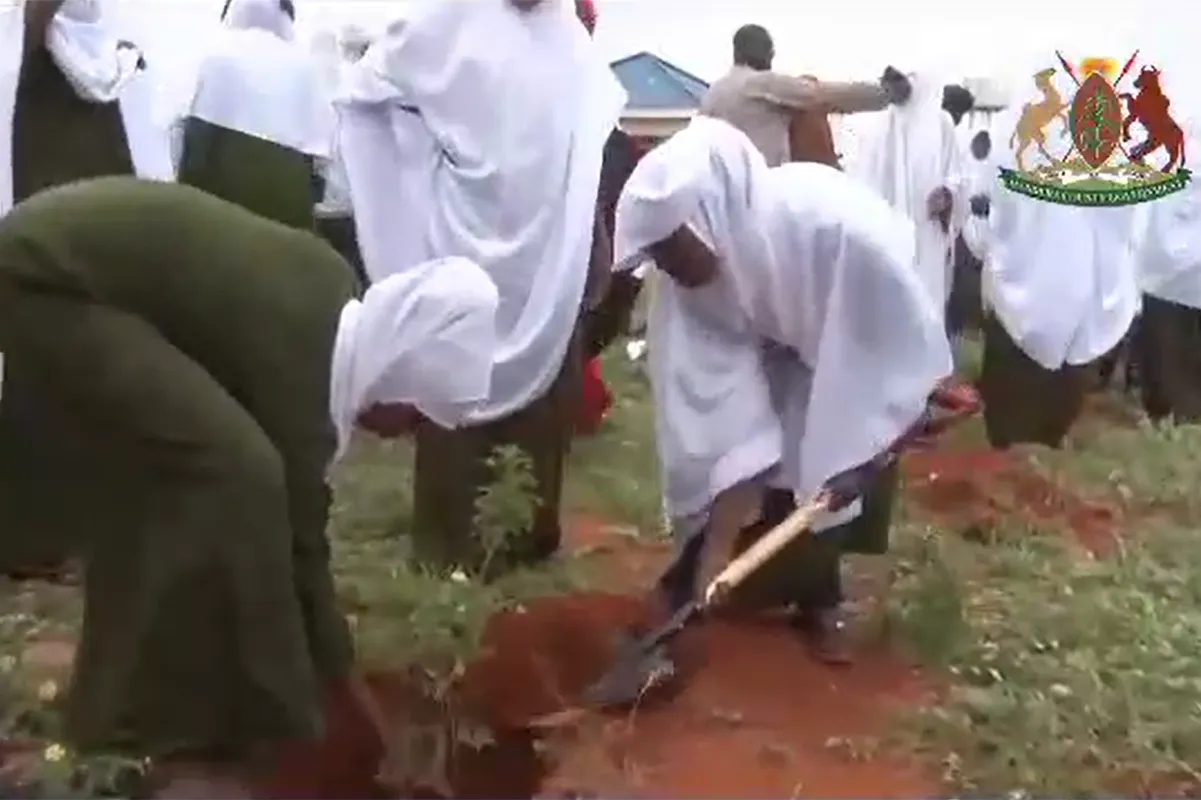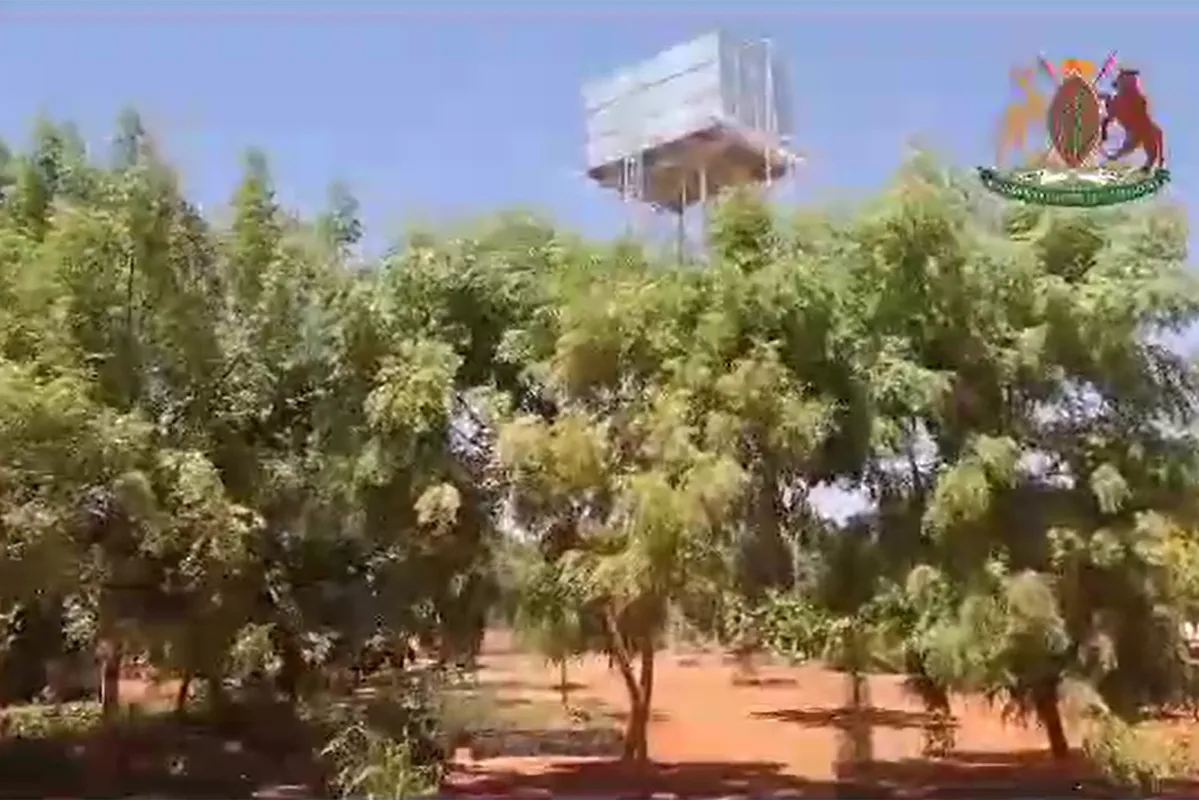Benefits of Urban Greening
Harnessing the Power of Plants
Scientific findings unequivocally support the pivotal role of trees and natural ecosystems in climate change mitigation and adaptation. In a region like Mandera, characterised by a semi-arid climate, extreme temperatures and recurrent droughts, scientific evidence highlights the capacity of trees to reduce the adverse effects of weather by providing shade, cooling the environment and contributing to climate resilience. By integrating these findings into our program, we have transformed Mandera from a dusty, inhospitable town into a green hub, providing a cooler and more pleasant living environment for our residents. Moreover, scientific research underscores the economic benefits of afforestation. Our initiative draws on this evidence by providing stable income opportunities to vulnerable individuals, particularly women and youth. Scientifically supported economic empowerment strategies have reduced poverty and disputes, and enhanced the creditworthiness of our participants, setting a precedent for innovative approaches to socio-economic challenges. Furthermore, the scientific consensus on the importance of community engagement and indigenous knowledge in sustainable ecosystem management has shaped our program. By actively involving local communities, clan heads, schools, and youth, we’ve fostered a culture of environmental stewardship deeply rooted in scientific principles. In essence, our initiative is intricately linked to a bold and innovative future for Mandera by translating scientific evidence into tangible actions. It exemplifies how a nature-positive approach, grounded in scientific knowledge, can create a resilient, prosperous and sustainable future for our city.
Delivering Multiple Benefits
Our initiative is designed with a holistic approach, harnessing the diverse advantages of trees and ecosystems. Beyond climate resilience, we’ve implemented innovative water management systems. This involves strategically placed underground and elevated water storage tanks, consistently replenished by water bowsers. This not only nurtures tree growth but also addresses water scarcity, a critical concern in our semi-arid region.
The afforestation program seamlessly aligns with the local policy and planning frameworks of the Mandera Municipality. The Municipality recognises the urgency of climate change adaptation and sustainable development and this alignment is formally documented in official policy documents, underscoring the program’s integration into local governance structures.
The initiative garners robust political support from county government officials and leaders who acknowledge its transformative potential. Elected representatives actively champion the program, allocating resources and advocating for its expansion. This support ensures a consistent flow of funding, bolstering the initiative’s long-term sustainability.
The active involvement of indigenous communities, clan heads, schools and youth underscores our initiative’s alignment with local governance structures. It has become an integral part of Mandera’s social fabric, enjoying grassroots support.
Success is substantiated by quantifiable outcomes, meticulously tracked and documented in local policy and planning reports. These include reduced temperatures, increased forest cover, enhanced economic stability among vulnerable groups, and heightened environmental awareness. These concrete achievements have garnered enduring political and governance support.
The City’s Bold and Innovative Vision
Our initiative envisions a transformed Mandera, where the power of afforestation and ecosystem management creates a resilient and prosperous future. What sets our program apart as bold, unique and innovative are several key facets.
Our multi-benefit approach goes beyond conventional afforestation efforts. While planting trees is fundamental, we’ve coupled it with strategic water management. The installation of underground and elevated water storage tanks, regularly replenished by water bowsers, is a pioneering approach. This integrated strategy not only supports tree growth but also mitigates water scarcity, a critical issue in our semi-arid region. This holistic, multi-benefit approach is unique in its comprehensive response to local challenges.
We’ve taken a transformative step by actively engaging and economically empowering 1,300 vulnerable individuals, particularly women and youth. These participants receive monthly stipends, fostering financial stability and reducing disputes. This approach addresses the intersection of environmental and socio-economic challenges, offering a new way of improving livelihoods while contributing to climate resilience.
Our initiative acknowledges the wisdom of indigenous communities and integrates their knowledge into our program. This inclusivity enriches our approach and promotes community ownership, allowing local populations to take the lead in shaping their future.
Our program enjoys unwavering political support and county governance endorsement. Elected representatives champion the initiative, allocate resources and advocate for its expansion. This backing has resulted in consistent funding, ensuring the initiative’s sustainability. It highlights a novel way of combining local governance with environmental action.
Partnerships and Collaboration
The Mandera Municipality Afforestation Program is a testament to the power of collaboration across diverse disciplines and sectors. We recognise that the challenges we face in transforming our semi-arid region into a green and resilient hub require multifaceted expertise and cooperation. To foster collaboration we’ve worked closely with water engineers to develop and implement a sophisticated water management system. This ensures that our water storage tanks are strategically placed and efficiently replenished by water bowsers. It’s a harmonious partnership that addresses both tree nurturing and water scarcity issues.
Our collaboration extends to economists, social workers and community development experts. Together, we’ve designed a program that not only affords climate resilience but also addresses poverty and unemployment rates. By providing monthly stipends to vulnerable individuals, we’ve stabilised families and reduced disputes. This economic empowerment aspect has been a joint effort involving professionals from various social and economic sectors.
Educators and schools are integral to our initiative. Teachers and students actively participate in tree nurturing, instilling a culture of environmental stewardship from an early age. This collaboration ensures that our future generations are environmentally conscious.
Sociologists and community organisers have played a vital role in engaging local communities, clan heads and vulnerable groups. Their expertise in understanding community dynamics has been invaluable in ensuring the program’s acceptance and success.
Addressing Urban Challenges
The Issue
The issue of climate change and environmental degradation is a critical problem for the city of Mandera. This challenge affects the city broadly, encompassing both its natural environment and its urban population.
Mandera faces a semi-arid climate characterised by scorching temperatures, minimal rainfall and recurring droughts. The adverse effects of climate change, including prolonged droughts, have devastated the region’s ecosystem. This has led to soil erosion, loss of vegetation and degradation of the landscape. Without intervention, this environmental degradation would persist and worsen, leaving Mandera even more vulnerable to extreme weather events and desertification.
The Impact of the Issue
The severity of the issue addressed by our initiative cannot be overstated. Environmental factors have a profound and detrimental impact on the lives of our citizens, businesses and the natural environment.
The scorching temperatures, often exceeding 33°C during the day, make daily life uncomfortable and pose health risks to our residents. This extreme heat affects their overall well-being, making outdoor activities difficult and even dangerous. Furthermore, the lack of shade exacerbates the situation, limiting opportunities for outdoor gatherings and community engagement.
The adverse climate conditions have forced many of our citizens into precarious livelihoods, such as charcoal burning, in a bid to combat high poverty and unemployment rates. These unsustainable practices contribute to environmental degradation and deforestation, worsening the already dire ecological situation.
The environmental challenges, including soil erosion and loss of vegetation, not only harm our natural surroundings but also impact agricultural productivity, a vital source of livelihood for many. This degradation threatens food security, perpetuating the cycle of poverty and vulnerability.
A Nature Orientated Future
Without a greening initiative, the city’s liveability would remain compromised, affecting the wellbeing of its urban population. Plants and nature are powerful tools to address these severe challenges. By strategically planting and nurturing trees, we create green spaces that provide shade, cool the environment, and enhance the quality of life for our citizens. Additionally, our program offers stable employment opportunities to vulnerable individuals, boosting their economic wellbeing and reducing disputes within families and communities.
Nature Positive Solutions
Implementation
Our approach combines strategic tree planting, water management, community engagement and economic empowerment. This multifaceted strategy has yielded significant progress, demonstrating our commitment to addressing the city’s challenges and fostering a nature-positive transformation.
We initiated the program by identifying and selecting sites based on environmental factors. These sites were prepared and tree seedlings were planted. Each participant was allocated 20 trees to nurture, ensuring the survival and growth of the new forest.
Recognising our region’s minimal rainfall, we strategically placed water storage tanks across various routes. These tanks are regularly filled by water bowsers to provide consistent hydration to our trees, essential for their survival and growth.
We actively engaged the local community, clan heads, schools and youth in our program, and integrated indigenous knowledge and practices, enriching our approach and promoting community ownership.
Mandera Municipality is gradually transforming from a dusty, hot town into a green hub.
Feasibility
Our initiative is built on a foundation of feasibility, with ongoing financial and logistical support ensuring the achievement of both short-term and long-term goals.
We have secured consistent funding from local government authorities, which demonstrates their commitment to our program. These funds cover the operational costs, including stipends for participants, tree nurseries and water management infrastructure. Furthermore, our success has attracted additional funding from both governmental and non-governmental organisations, enhancing our financial sustainability.
Our logistical infrastructure, including underground and elevated water storage tanks and transportation for water replenishment, has been well-established. This logistical framework ensures the continuous hydration of our trees, a critical factor in the arid Mandera climate.
The success of our initiative has influenced local policy and planning. The Mandera Municipality has incorporated our afforestation program into its official policy documents, recognising the significance of climate adaptation and sustainable development. This integration showcases the enduring impact of our initiative on the city’s future planning and policy decisions.
Our initiative’s ongoing financial support, robust logistical framework, and its influence on local policy and planning underscore its feasibility and long-term sustainability.
Multi-Stakeholder Support
Our initiative enjoys extensive support from a wide range of stakeholders, showcasing strong participation and cross-disciplinary collaboration.
Indigenous communities within Mandera Municipality actively participate in our program. They have embraced tree nurturing and replication within their communities, demonstrating a deep sense of ownership and commitment. This grassroots support is pivotal in ensuring the program’s sustainability.
Youth, an integral part of our program, actively engage in tree nurturing. Local schools, including Moi Girls and Mandera Secondary School, have fully embraced the initiative, involving teachers and students in tree nurturing and replication. This engagement fosters environmental stewardship from an early age, promoting a culture of sustainability.
We have garnered support from local businesses and professionals who recognise the program’s transformative potential. Strong political support from County government officials and NGOs has been instrumental in our program’s ongoing success. They have allocated resources and advocated for its expansion, ensuring its continued growth and impact.
Our program inherently promotes cross-disciplinary collaboration by addressing environmental, economic and social dimensions. It integrates indigenous knowledge, water management, climate resilience and community engagement, bringing together various sectors and disciplines to achieve a common goal. Broad stakeholder support, ranging from local communities to businesses, professionals, government bodies and NGOs, underscores its multi-level, multi-sectoral and cross-disciplinary collaboration, ensuring its holistic approach to addressing Mandera’s challenges.
Management and Maintenance
Our initiative has been meticulously designed and implemented to ensure long-term management and maintenance efficiency and effectiveness, with a focus on sustainability. To achieve this, we’ve taken several strategic measures.
From the program’s inception, we’ve actively involved local communities and schools. This sense of ownership ensures that the initiative becomes an integral part of the Municipality’s social fabric. Communities have not only nurtured the trees but also taken up replication in their neighbourhoods, schools and homesteads.
We’ve empowered local participants with the knowledge and skills required for effective management and maintenance. This includes tree nurturing techniques, water management and sustainable forest practices. Afforestation supervisors with expertise in Mandera Municipality’s unique environment oversee the program.
A robust monitoring and reporting system has been established to track tree growth, water infrastructure maintenance and the economic impact on participants. This data-driven approach helps identify issues promptly and ensures efficient management.
The monthly stipends provided to program participants serve as a financial incentive, promoting long-term commitment. This has led to more stable families and communities, reducing disputes and enhancing creditworthiness.
Initial resource constraints were addressed through collaborations with county government officials and professionals who provided financial assistance and technical expertise.
To address unexpected droughts, we’ve increased the number of water bowsers to ensure consistent tree hydration, minimising plant loss.
Measuring and Reporting Impact
Monitoring Results
Our initiative has established robust protocols to facilitate the monitoring of results, ensuring that it achieves a nature-positive outcome for Mandera.
We collect data on various key performance indicators, including tree growth rates, water infrastructure maintenance, monthly income distribution and community engagement. This data is gathered regularly through surveys, field inspections and participant reporting.
Quantifiable metrics are tracked to demonstrate progress. These include increased forest cover, reduced temperatures, improved economic stability among vulnerable groups and heightened environmental awareness. Baseline data was established, and regular assessments are conducted to measure progress against these metrics.
The program maintains detailed records and reports of its activities and outcomes. These reports are shared with local government officials, stakeholders and the public to ensure transparency and accountability.
Continuous feedback from participants, local communities and schools is encouraged. This input is essential for making adjustments and improvements in real-time.
Periodic independent assessments are conducted to validate the program’s impact and adherence to its objectives.
Monitoring plays a pivotal role in enhancing our ability to demonstrate progress, making it a cornerstone of our initiative and providing us with real-time insights into the effectiveness of our afforestation program. It enables us to identify what is working well and where adjustments are needed, allowing for informed, evidence-based decision-making. Monitoring ensures accountability, both to our stakeholders and ourselves. It demonstrates that we are committed to delivering on our objectives and that resources are being used efficiently and effectively.
Demonstrating Progress
Measurable progress showcases our initiative’s impact and success. This, in turn, makes a compelling case for expansion. By having tangible results to present, we can attract interest and funding from various sources, including government agencies, non-profits and international organisations, to scale up our greening ambitions.
Progress data fosters a sense of ownership and engagement among local communities. When they see the positive changes brought about by the program, they become more invested in its success and are more likely to replicate it in their own communities.
Demonstrable progress builds credibility and trust, which is crucial when seeking support from potential partners and funders. It validates our approach and increases the likelihood of attracting new projects and strategies that align with our nature-positive goals.
Our initiative’s nature-positive outcome is evident. Mandera’s landscape is transforming from a dusty town into a green hub, with trees providing shade, cool breezes, and a more comfortable environment. Vulnerable individuals, particularly women and youth, now have stable sources of income, reducing poverty and enhancing family stability. Indigenous communities, schools and youth actively participate, fostering environmental stewardship and ensuring the program’s sustainability.
Measuring Impact
The Mandera Municipality Afforestation Program has achieved significant milestones over the past five years, with measurable impacts that demonstrate its success. To comprehensively assess these achievements we provide annual reports that combine both quantitative and qualitative data, offering a holistic view of our initiative’s impact.
Quantitative Measurement:
- We’ve quantified the increase in forest cover within the Mandera Municipality jurisdiction. Our afforestation efforts have led to the growth of over 200,000 trees, covering an area of approximately 400 acres.
- We track the program’s economic impact by measuring the monthly stipends provided to the 1,300 participants. This quantitative data showcases how the initiative has improved the financial stability of vulnerable individuals.
- Quantitative data includes the number of schools and youth actively participating in tree nurturing. We also monitor the replication of the program in various communities, indicating a growing culture of environmental stewardship.
Qualitative Measurement:
- We assess the environmental transformation by collecting narratives and stories from residents. They describe the improved quality of life due to cooler temperatures and the pleasant environment created by the trees, and improved family stability, reduced disputes and enhanced creditworthiness from program participants.
- Our reports include the increase in forest cover, the number of participants, the monthly stipends disbursed and the expansion of the program to schools and communities.
Learning and Transferability
Adaption and Enhancement
Throughout the design and implementation of the Mandera Municipality Afforestation Program, we have actively incorporated improvements based on monitoring and feedback from external stakeholders. These adaptations have been crucial in enhancing the initiative’s success.
In response to the monitoring of tree survival rates and water availability, we installed additional elevated water storage tanks and adjusted watering schedules. This ensured better tree growth and resilience in the face of changing weather patterns.
External stakeholders, including local NGOs and community leaders, provided insights into enhancing community engagement. As a result, we expanded our awareness campaigns, targeting schools and youth to foster environmental stewardship from an early age.
We recognised the importance of long-term funding for program sustainability. External funding agencies and partners have been instrumental in securing financial support and ensuring that our initiative remains well-funded.
Collaboration with external environmental experts and ecologists enriched our understanding of local ecosystems, helping us choose tree species suitable for Mandera’s climate. This knowledge exchange improved tree survival rates and overall program effectiveness.
External stakeholders, including environmental policymakers, advocated for policy changes that further supported our afforestation efforts. This alignment with broader policy goals has strengthened the initiative’s foundation.
These adaptations and enhancements are a testament to our commitment to continuous improvement and the meaningful engagement of external stakeholders in shaping our initiative. By remaining open to feedback and responsive to monitoring data, we have ensured the success and long-term sustainability of our afforestation program.
Potential for Replication
The Mandera Municipality Afforestation Program has sparked a ripple effect that extends beyond its initial scope, catalysing transformative changes in how our city and partners work with plants and nature.
From the program’s inception, knowledge exchange has been integral. We’ve shared insights on tree selection, planting techniques and water management with community members, schools and youth. This knowledge transfer has empowered individuals to replicate our initiative in their communities, fostering a broader culture of tree planting and environmental stewardship.
By engaging schools and youth, we’ve planted the seeds of environmental awareness. These young participants have not only learned about tree nurturing but have become advocates for nature conservation. This shift in mindset is shaping the future generation’s approach to plants and ecosystems.
As a result of our program’s success, several community-driven tree planting initiatives have emerged independently. Clan leaders, inspired by our work, have initiated their afforestation efforts, amplifying our impact across Mandera.
The greening of Mandera has influenced urban planning decisions, with a greater emphasis on integrating green spaces into the city’s layout. This has improved the urban environment and residents’ quality of life.
Our program has attracted the attention of neighbouring regions, leading to cross-border collaborations. This regional approach broadens the initiative’s impact and highlights the importance of nature-positive actions across borders.
Inspiring Other Cities
Our Mandera Municipality Afforestation Program has garnered attention from other cities and regions, serving as a source of inspiration and a model for customised urban greening initiatives.
Neighbouring municipalities facing similar climate challenges have expressed keen interest in replicating our program. They recognise that our initiative offers a viable solution to combat arid conditions and extreme temperatures while enhancing climate resilience. The success stories emerging from Mandera have piqued their curiosity and motivated them to consider similar interventions.
Our program is adaptable and can be tailored to suit the unique circumstances of different cities and regions. Whether addressing water scarcity, extreme temperatures or economic empowerment, the principles of our afforestation approach can be customised to align with local priorities. This flexibility makes it a compelling model for cities with diverse challenges.
The transformative impact of our initiative inspires cities to elevate their urban greening ambitions. Witnessing how we’ve turned adversity into opportunity and catalysed positive change motivates other urban centres to set higher environmental goals. Our program serves as a beacon of hope, proving that nature-positive outcomes are achievable even in challenging contexts.
We actively share our experiences, knowledge and best practices with interested cities, facilitating a collaborative exchange of ideas and strategies. This knowledge-sharing fosters a network of urban areas committed to green initiatives, amplifying the collective impact on a regional and even global scale.
Resilience
Reducing Negative Impacts and Ensuring Sustainability
Our Mandera Municipality Afforestation Program is committed to reducing its carbon footprint and ensuring long-term sustainability.
To minimise our carbon footprint, we’ve adopted several strategies. First, our afforestation efforts play a critical role in carbon sequestration, capturing and storing carbon dioxide from the atmosphere. Second, we’ve implemented a water management system that reduces the energy required for irrigation, as we prioritise the efficient use of water resources. Lastly, our program promotes the use of clean energy sources for water pumping, minimising reliance on fossil fuels.
We’ve taken proactive steps to mitigate any unintended negative impacts of our initiative. This includes conducting regular environmental assessments to identify and address potential issues. For example, we monitor soil quality to ensure that our tree planting does not degrade the land. We also engage with local communities to address any concerns or conflicts that may arise from the program’s activities.
Sustainability is at the core of our program. We’ve invested in local capacity building, training community members in sustainable afforestation practices. Additionally, we’ve secured ongoing financial support to ensure the program’s longevity. Our focus on community ownership and replication of the initiative in local communities further ensures its sustainability.
Given Mandera’s vulnerability to climate change, our afforestation program enhances the city’s resilience. By creating a cooler and more climate-resilient environment, we’re better prepared to face the challenges of a changing climate, such as extreme heat and drought.
Environmental Considerations
Our Mandera Municipality Afforestation Program has meticulously considered the anticipated impacts on the environment in various aspects of its design and implementation.
Plant selection is a critical aspect of our initiative. We’ve chosen tree species that are well-suited to the local microclimate and are drought-resistant, given Mandera’s semi-arid environment. This deliberate choice minimises water requirements and ensures the long-term survival and growth of the trees. Diversification is also a key principle in our program, promoting biodiversity and a healthier ecosystem.
Access to water is a precious resource in our region. We’ve prioritised water efficiency by implementing an underground and elevated water storage system. Rainwater harvesting is a fundamental component of our program, utilising this sustainable water source for tree irrigation. By relying on rainwater and recycled water, we reduce the strain on local freshwater sources and promote responsible water management.
In terms of energy, we’ve embraced clean energy sources for water pumping and irrigation, minimising our carbon footprint. Solar-powered water pumps, for instance, ensure energy efficiency while aligning with our commitment to sustainability.
Our program emphasises the responsible use of resources. We encourage the recycling of materials used in tree nurturing and maintenance, reducing waste and promoting an eco-friendly approach.
To ensure that our initiative aligns with environmental considerations, we conduct regular assessments. These evaluations help us identify and address any potential negative impacts on the environment and guide our decision-making.
Use of Natural Resources
Our Mandera Municipality Afforestation Program has been designed with sustainability and resilience in mind, taking into careful consideration the use of natural resources, particularly soils, water and other vital elements of our ecosystem.
To ensure soil sustainability, we employ conservation techniques such as mulching and organic matter incorporation. These practices help retain soil moisture, enhance fertility and reduce erosion. Importation of topsoils from outside areas is strictly avoided to preserve the local soil ecosystem.
Our initiative is highly conscious of water use. Rainwater harvesting is the primary source for tree irrigation and recycled water is utilised whenever possible, minimising the demand on freshwater supplies. Our water management practices are designed to be both resource-efficient and environmentally friendly.
Soil erosion is a significant concern in our semi-arid region. Our program incorporates erosion control measures like contour farming and the strategic placement of vegetation to stabilise soil. These practices safeguard against soil degradation and ensure the long-term sustainability of our afforestation efforts.
In our selection of plant species, we prioritise native and drought-resistant varieties. This approach not only conserves natural resources but also fosters a resilient ecosystem that can thrive in Mandera’s challenging climate conditions.
Regular environmental assessments are conducted to monitor the impact of our program on natural resources. If any unsustainable practices are identified, we adapt our strategies to rectify them promptly.















